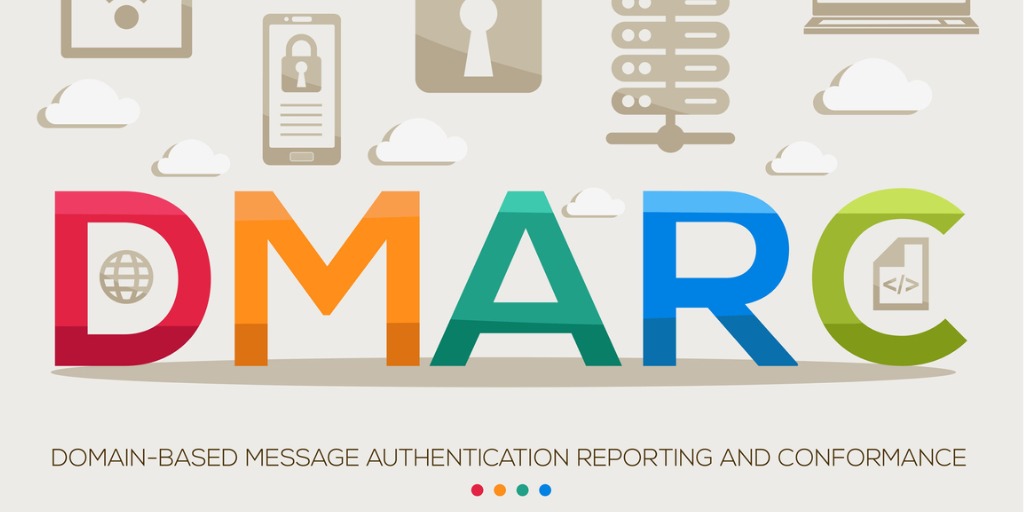Google and Yahoo’s new DMARC authentication requirement, set to start in February 2024, mandating that email senders to use DMARC (Domain-based Message Authentication, Reporting, and Conformance) for enhanced email security. This shift is largely in response to rising concerns about email security and spam. This move aims to enhance the integrity and security of email communication, particularly for bulk email senders.
This protocol, working alongside SPF (Sender Policy Framework), and DKIM (DomainKeys Identified Mail), aims to combat email spoofing and phishing by authenticating and validating emails from legitimate sources. For businesses, this means greater protection against cyber threats, improved brand integrity, and higher email deliverability rates. Non-compliance could lead to email delivery issues, impacting customer communication and business relationships. The implementation of these protocols is crucial for email senders to maintain their credibility and ensure the delivery of their emails to Gmail and Yahoo mail users.
A significant aspect of these new requirements is a focus on reducing spam and ensuring that only wanted emails reach inboxes. To achieve this, Google and Yahoo are setting a spam complaint rate threshold of 0.3%, urging senders to only dispatch emails to recipients who have opted in, and enforcing a one-click unsubscribe feature. This feature must be easy to use and processed within two days, reducing the likelihood of emails being marked as spam and improving deliverability.
Another important requirement is the establishment of a valid forward and reverse DNS (Domain Name System) record for sending IP addresses. This step is vital for verifying that the email sender’s IP address is legitimate and not associated with spam or malicious activities.
For businesses and organizations, adapting to these new requirements will involve several steps. They will need to set up SPF, DKIM, and DMARC records for their sending domains, monitor their spam rates, and ensure compliance with RFC (Request for Comments) standards. Additionally, using a TLS (Transport Layer Security) connection for email transmission is recommended for enhanced security.
The enforcement of these new requirements will be gradual but progressive. Initially, non-compliant senders may experience delays in email delivery, which could eventually lead to outright rejection of emails. Therefore, it’s crucial for businesses to understand these requirements and start implementing the necessary changes well before the 2024 deadline.
The new DMARC authentication requirements by Google and Yahoo represent a significant shift in email communication standards. They aim to combat email spoofing and phishing attacks, reduce spam, and improve the overall email experience for users. Businesses and email senders are advised to proactively adopt these standards to ensure compliance and maintain effective email communication strategies.
The DMARC requirements, for the upcoming Google and Yahoo email authentication standards, include:
- SPF and DKIM Authentication: Senders must enable SPF (Sender Policy Framework) or DKIM (DomainKeys Identified Mail) email authentication.
- SPF and DKIM Alignment: Ensure that the domain in the ‘From’ header aligns with the domain used in SPF and/or DKIM records.
- PTR Record for Sending IPs: Validate that each IP address used for sending emails has a corresponding PTR (Pointer) record in DNS (Domain Name System).
- Low Spam Complaint Rate: Maintain a spam complaint rate below 0.3% to meet Google’s requirements.
- One-Click Unsubscribe Feature: Implement a one-click unsubscribe option for promotional emails, which should be processed within two days.
- Adherence to RFC Standards: Emails must conform to standards established by RFC (Request for Comments) 5321 and 5322.
- Valid Forward and Reverse DNS Records: Ensure that your sending IPs have valid forward and reverse DNS records.
- Avoid Spoofing gmail.com or yahoo.com: Do not use email services that allow sending emails ‘as’ @gmail.com or @yahoo.com addresses to avoid delivery issues.
- Regular Monitoring and Reporting: Monitor DMARC reports to keep track of SPF, DKIM, and DMARC authentication status and adjust as necessary.
- DMARC Policy Setup: Set up a DMARC policy for your domain and monitor compliance with the policy.
Implementing these DMARC requirements is crucial for ensuring email security and deliverability, particularly with the upcoming changes in Google and Yahoo’s email authentication standards.
For more detailed information and guidance on implementing these changes, businesses can consult resources and guidelines provided by Google and Yahoo, as well as seek assistance from email security experts and service providers.
The new DMARC authentication requirements set by Google and Yahoo mark a significant step towards enhancing email security and user experience. Adhering to these guidelines is crucial for businesses to ensure their emails reach their intended recipients without being flagged as spam or rejected. While these guidelines provide a clear framework for compliance, implementing these changes can be challenging, especially for businesses without specialized IT expertise. In such cases, LevelUP MSP offers professional assistance. Their team of experts can help companies navigate these new requirements, ensuring a smooth and effective transition. With LevelUP MSP’s support, businesses can confidently adapt to these changes and maintain robust and secure email communications.
LevelUp Your IT Support and Security
Find Out Why San Jose Businesses Trust LevelUP For Their IT Services
We offer a no-risk, no-obligation opportunity to gain the clarity your organization needs. Let us help you streamline your IT processes and get back on track with confidence.


